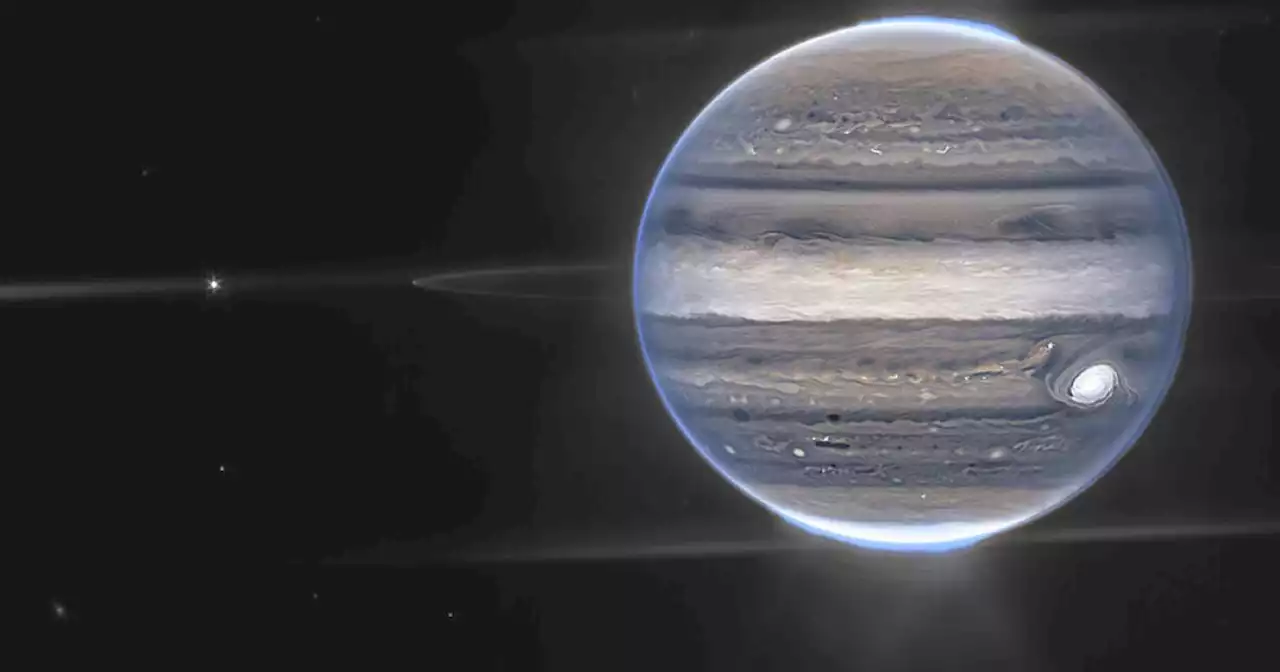Fans of astronomy will be in for a treat as a special event is set to happen Monday night in the sky. That's when Jupiter is set to make its closest approach to Earth since 1963, NASA said.
That's when Jupiter is set to make its closest approach to Earth since 1963, NASA said.
According to the space agency, the solar system's largest planet will be approximately 367 million miles in distance from Earth as opposed to its farthest distance of roughly 600 million miles. NASA said the gas planet would appear bigger and brighter because of its opposition, which means that it'll be directly opposite the Sun in the sky as viewed from Earth.
“With good binoculars, the banding and three or four of the Galilean satellites should be visible,” said NASA research astrophysicist Adam Kobelski in a blog post. “It’s important to remember that Galileo observed these moons with 17th-century optics. One of the key needs will be a stable mount for whatever system you use.”
Kobelski says the best place to view the unique event will be a high elevated spot in a dark and dry area.
United States Latest News, United States Headlines
Similar News:You can also read news stories similar to this one that we have collected from other news sources.
 Watch Monday when Jupiter is closer to earth than it’s been in almost 70 yearsThat close approach coincides with Jupiter in opposition, meaning the sun and Jupiter will be on opposite sides of the earth.
Watch Monday when Jupiter is closer to earth than it’s been in almost 70 yearsThat close approach coincides with Jupiter in opposition, meaning the sun and Jupiter will be on opposite sides of the earth.
Read more »
 Here's our plan for Monday after another painful week to own stocksStocks took a beating this week as the Federal Reserve raised interest rates by another 75 basis points, while yields on the 2-Year Treasury continued to climb.
Here's our plan for Monday after another painful week to own stocksStocks took a beating this week as the Federal Reserve raised interest rates by another 75 basis points, while yields on the 2-Year Treasury continued to climb.
Read more »
 Highway 2, Stevens Pass expected to reopen MondayThe closure began on Sept. 10 when the Bolt Creek wildfire erupted. Hundreds of trees were damaged. Some fell onto the road or were close enough to the highway to pose a threat.
Highway 2, Stevens Pass expected to reopen MondayThe closure began on Sept. 10 when the Bolt Creek wildfire erupted. Hundreds of trees were damaged. Some fell onto the road or were close enough to the highway to pose a threat.
Read more »
 DART asteroid-smashing mission 'on track for an impact' Monday, NASA saysBrett is a science and technology journalist who is curious about emerging concepts in spaceflight and aerospace, alternative launch concepts, anti-satellite technologies, and uncrewed systems. Brett's work has appeared on The War Zone at TheDrive.com, Popular Science, the History Channel, Science Discovery, and more. Brett has English degrees from Clemson University and the University of North Carolina at Charlotte. In his free time, Brett is a working musician, a hobbyist electronics engineer and cosplayer, an avid LEGO fan, and enjoys hiking and camping throughout the Appalachian Mountains with his wife and two children.
DART asteroid-smashing mission 'on track for an impact' Monday, NASA saysBrett is a science and technology journalist who is curious about emerging concepts in spaceflight and aerospace, alternative launch concepts, anti-satellite technologies, and uncrewed systems. Brett's work has appeared on The War Zone at TheDrive.com, Popular Science, the History Channel, Science Discovery, and more. Brett has English degrees from Clemson University and the University of North Carolina at Charlotte. In his free time, Brett is a working musician, a hobbyist electronics engineer and cosplayer, an avid LEGO fan, and enjoys hiking and camping throughout the Appalachian Mountains with his wife and two children.
Read more »
